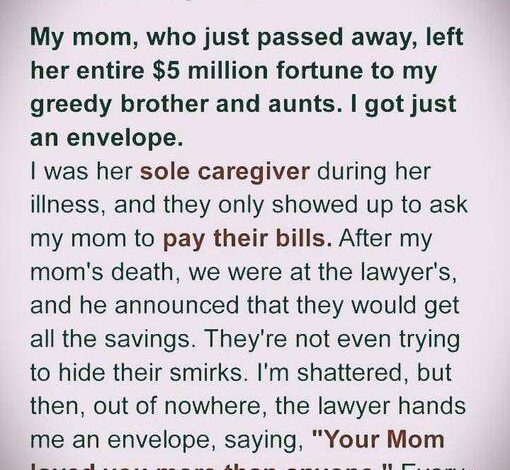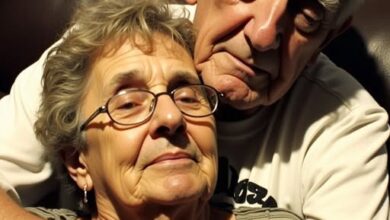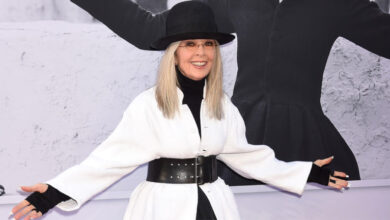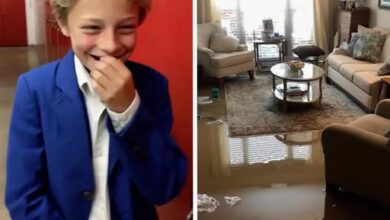
The Envelope My Mother Left Me Held More Than Money, It Held the Truth About Love
When the lawyer began reading my mother’s will, I thought I knew exactly what was coming. My mother had always been generous to everyone — my brother, our aunts, the cousins who barely called her — all of them. But me? I was the one who stayed. Through her illness, the endless nights in the hospital, the quiet mornings when she’d wake up too tired to talk but still smiled when she saw me. I’d been there, not because of obligation, but because I loved her.
So when the lawyer’s voice echoed through the office, announcing that her $5 million estate was being split between everyone but me, I felt like the air had been sucked out of the room. The others tried to hide their excitement, but the faint smiles and congratulatory whispers gave them away. I just sat there, motionless, staring at the single thing she’d left me — a plain envelope with my name written in her careful handwriting.
Inside wasn’t a check, a note, or an apology. Just a small key and an address written on a slip of paper.
My first reaction was confusion, followed by anger. Had she really given me nothing? After everything? But then I took a deep breath. My mother wasn’t cruel, and she never did anything without meaning. Whatever this was, I owed it to her to find out.
That afternoon, I followed the address. It led me out of the city, past the noise and traffic, to a quiet country road lined with oak trees. At the end stood a small stone cottage surrounded by wildflowers, the kind she used to grow in her backyard when I was little. The house looked untouched, frozen in time.
When I unlocked the door and stepped inside, a wave of lavender hit me — her favorite scent. Sunlight filtered through lace curtains, casting soft patterns across the wooden floor. On the kitchen table sat a single sealed letter addressed to me.
My hands trembled as I opened it. Her familiar handwriting filled the page.
“My dearest child,
You gave me love when I had nothing else. You stayed when it would’ve been easier to walk away. I saw the sacrifices you made, even when you thought I didn’t.
This home is my gift to you — the place where peace and memories live forever. Here, you’ll find pieces of my life and the proof that love means more than gold.”
Tears blurred the words. I looked around the cottage, imagining her sitting here, writing that letter, knowing it would be the last conversation we’d ever have.
Outside, a small garden stretched behind the house, overgrown but alive. I wandered through it until I reached an old oak tree with roots thick as arms. Something caught my eye — a small wooden chest tucked beneath the tree’s shadow.
I knelt, brushed off the dirt, and opened it. Inside were pieces of her world — photo albums filled with black-and-white pictures from her youth, her wedding ring, and a folded document. When I opened it, my breath caught. It was the deed to the cottage, signed in her hand, transferring the property to me.
I sat there, clutching it, realizing what she’d done. She hadn’t left me money to fight over. She’d left me something infinitely more valuable — her story, her legacy, her trust. She’d given everyone else what they wanted. She gave me what I needed.
In the days that followed, my phone buzzed nonstop. My relatives were already arguing over their inheritance — who got the bigger share, who deserved more, who wanted to sell their part for cash. Meanwhile, I spent my mornings tending the garden behind the cottage.
Every seed I planted felt like a conversation with her. The wildflowers began to bloom again, bright and full of life, like she was still there, guiding my hands. I started spending my weekends there, fixing up the old furniture, repainting the walls, listening to the birds she used to love.
As time passed, the bitterness I’d felt that day in the lawyer’s office began to fade. I realized what she’d been trying to teach me all along — that love isn’t measured in money or possessions, but in time, care, and memory.
The cottage became my refuge. Sometimes, after long days at work, I’d drive out just to sit in her old rocking chair by the fireplace. The air always smelled faintly of lavender and woodsmoke. On the mantle, I placed her wedding photo — the one where she’s looking at my father like he’s the only man in the world.
I thought about how love changes form but never disappears. She had poured hers into this place, into the soil, the walls, the scent of the air. She’d left me a home, yes, but more than that — she’d left me a reminder: you are seen, you are loved, and what matters can’t be counted in dollars.
One evening, my brother called. The family’s inheritance had already begun to crumble. Lawsuits, resentment, endless drama. He asked if Mom had left me anything “real.”
I told him the truth. “Yeah,” I said. “She left me peace.”
He didn’t respond, just hung up. And for once, I didn’t feel like I had to explain myself.
Months later, as I sat beneath the oak tree watching the sunset spill across the garden, I thought about how she’d orchestrated it all. The will, the key, the letter — it wasn’t punishment. It was wisdom. She knew that money fades, but love endures. She gave them what they thought they wanted and gave me what I didn’t know I needed.
The cottage stands now as both her final gift and her final lesson. It isn’t a mansion or a fortune — it’s something far rarer: a place filled with truth, forgiveness, and the kind of love that doesn’t demand recognition.
Every time the wind rustles the wildflowers or the sunlight catches the ring she left me, I feel her presence. Not as a ghost, but as a quiet certainty — that love doesn’t die, it just changes where it lives.
My mother’s last words echo in my heart even now: “Peace and memories live forever.”
And they do — right here, in this little cottage, where her love still breathes between the walls.




